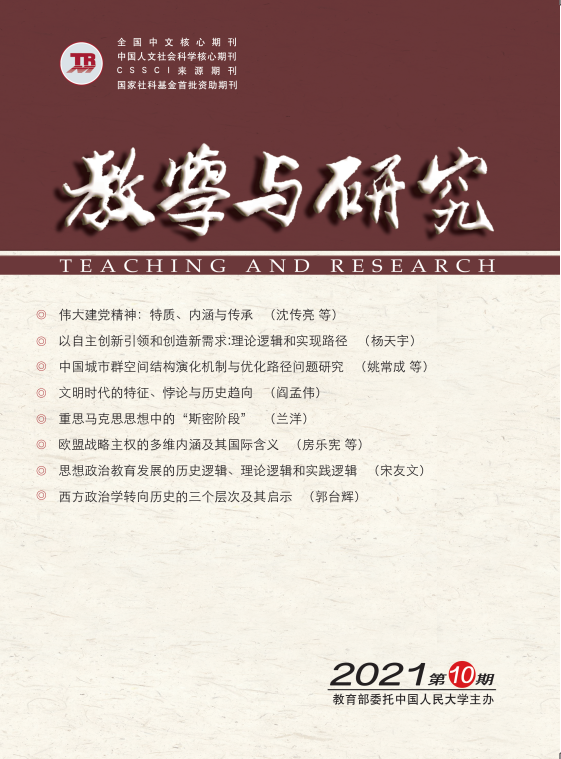|
|
The Historical Turn in Western Political Science: Three Levels and Implications
Guo Taihui
2021, 55 (10):
92-102.
Based on a review of the academic history of the “historical turn” in Western social sciences, three levels of historical turn can be identified in political science, which result from different understandings of history. At the level of history as methodology, the theories, propositions, and concepts produced in political science are held as “fundamental principles”, while historical studies are used for “practical application”, providing materials for proving the rationality of knowledge. At the level of history as epistemology, the historical and political studies are integrated, which start from real political issues, highlight the historical sources of political knowledge, and interpret or explain the historical processes and causes. At the level of history as ontology, political science is instead used for “practical application”, whose discussions are aimed at revealing the universal historical processes, i.e. the “fundamental principles”. The historical turns at the three levels have rationality in knowledge production and basis in the academic history, but they also have different problems. Political science in China has recognized the significance of the historical turn. However, the three levels of historical turn should not be separated; instead, we need to find the interlevel logical and factual connection mechanisms. The particularly important but difficult part is about the third level. We need to establish a unified historical conception based on the tradition of the Chinese civilization, and set it as the foundation of the other two levels.
Related Articles |
Metrics
|



